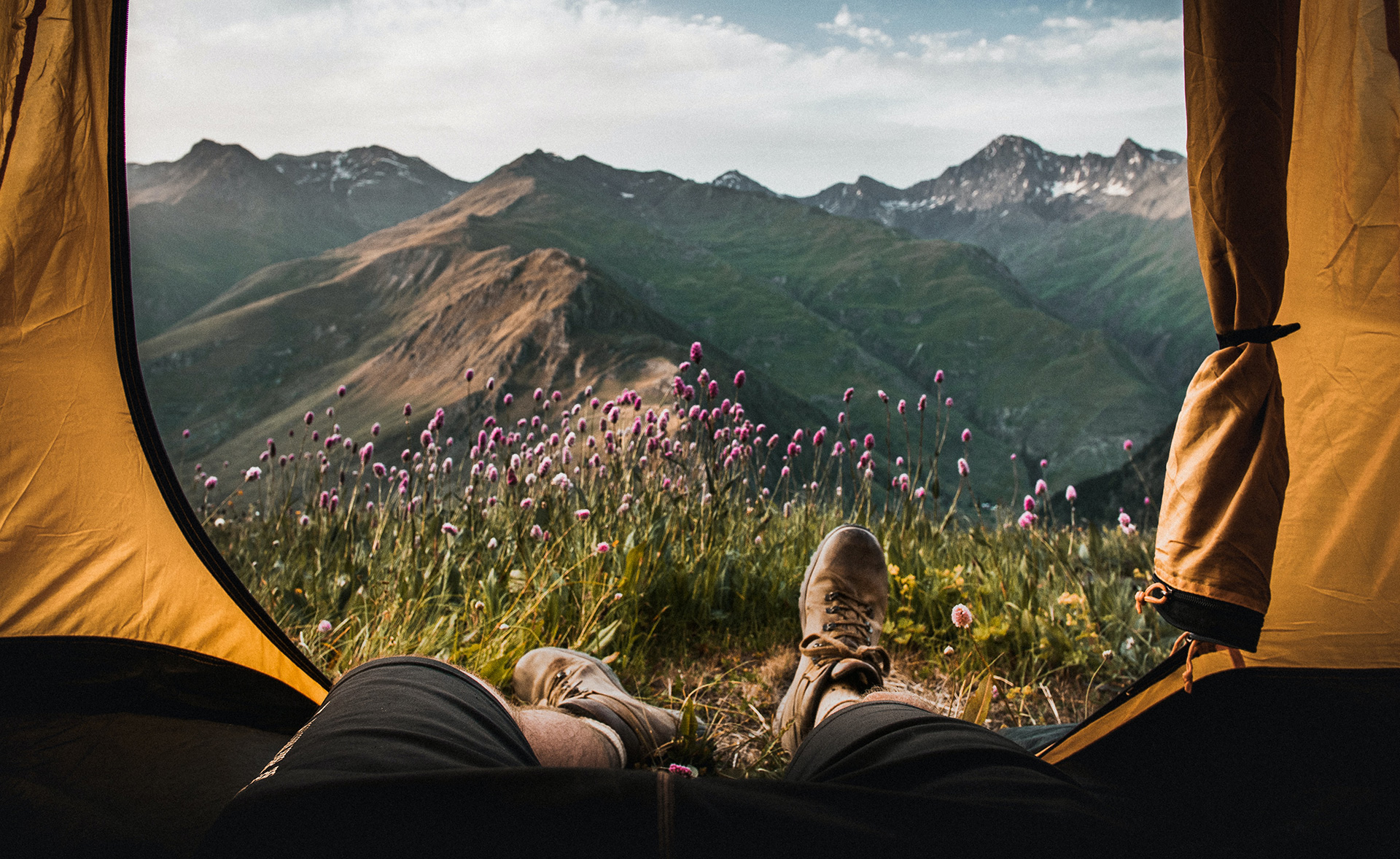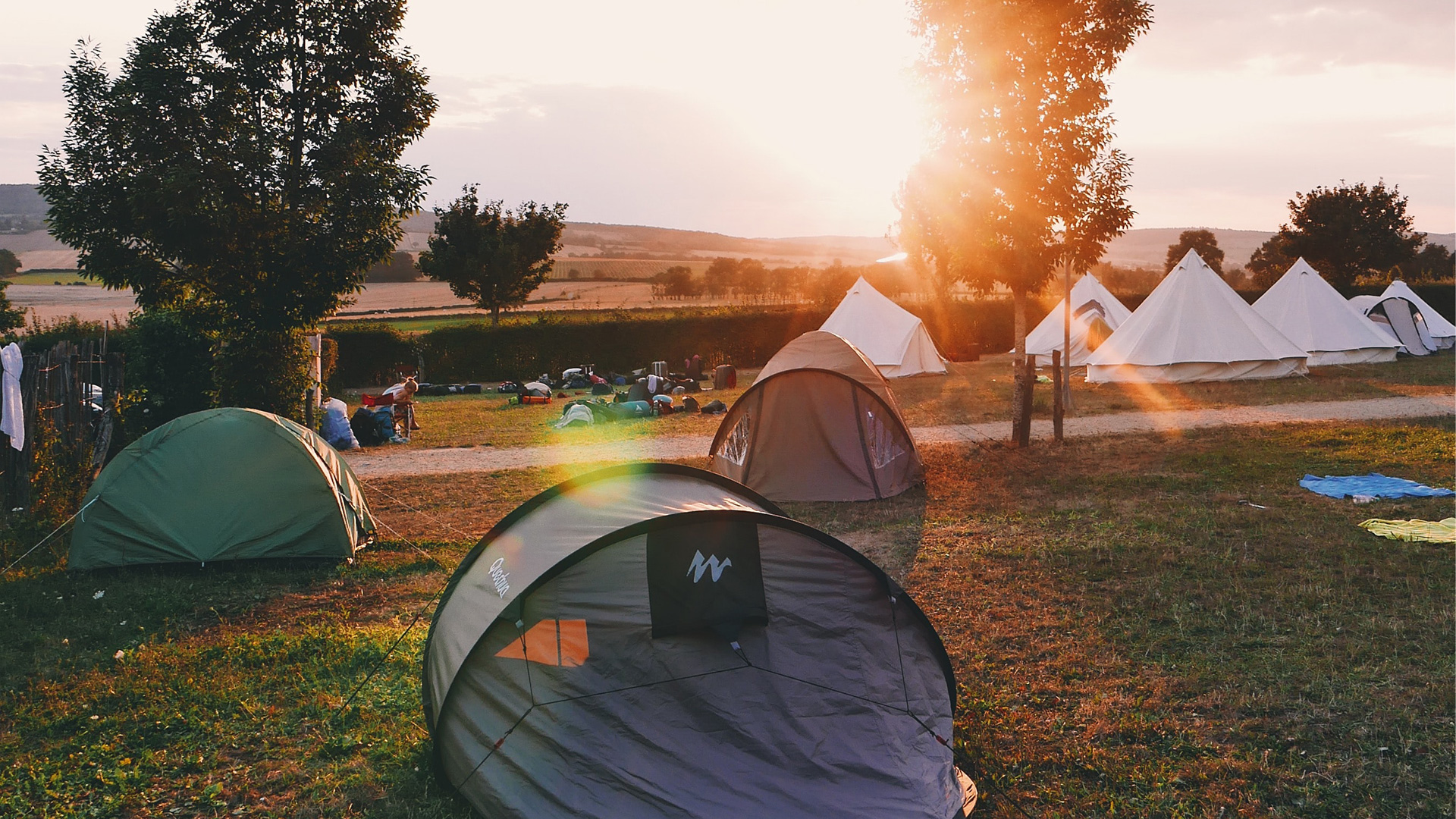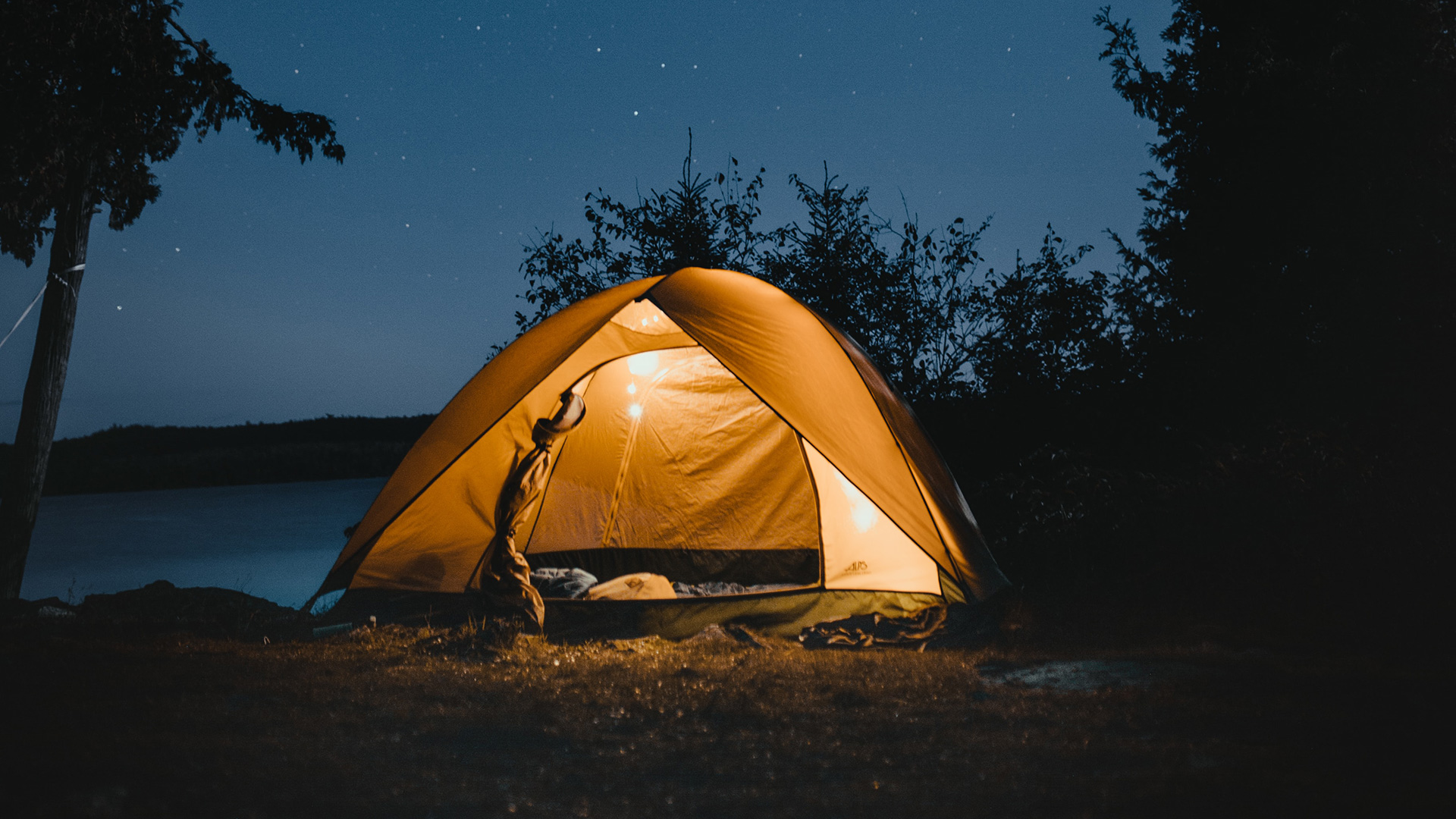Camping and COVID-19: Everything you need to know about camping this summer
Sleeping under canvas is a great way to get out and about while staying socially distanced – here's T3's ultimate COVID-19-era guide to self-contained travel


Travel is back on the menu, but it's well-planned, self-contained, self-sufficient and affordable adventures close to home that could see the biggest spike in popularity – and that means camping. Wild camping is largely illegal in the England and Wales (though there are some exceptions), although it is allowed in Scotland. In this guide, we're largely talking about organised campsites. Demand for pitches is likely going to exceed normal levels for a while, so always book ahead where possible.
However, many would-be travellers have had their confidence shaken by the lockdown, so is it safe to go camping?
Is it safe to go camping?
We all know by now that it's indoors that coronavirus is most easily transmitted, so any trip that you spend mostly outdoors is going to be relatively safe. "Camping is the perfect socially distanced holiday – many people go camping precisely to get away from others, so it follows that it's an activity that can be enjoyed safely while coronavirus continues to be a concern," says Jonathan Knight, founder of camping specialists Cool Camping, which has launched a collection of socially distanced campsites. "The fact that it is outdoors too means that the chance of transmission is greatly reduced than in any indoor environment."
Typically spacious and with relatively few touchpoints, campsites and already well set-up to deal with pandemic-prevention – and now many are taking special precautions. "Campgrounds have the advantage of more space than other types of accommodation, with fewer enclosed spaces and ventilation systems, reducing the risk of coming into contact with the virus," says Dan Yates, founder of campsite booking hub Pitchup.com. "You also get the added bonus of immersion within nature and a sense of calm." Cue the socially-distanced campsite.
- Check out T3's guide to camping (in normal times)
What is a socially-distanced campsite?
The best socially-distanced campsites are different to the campsites you might have visited before the pandemic. Many campsites are reducing the number of campers they will be allowing onsite so that there is plenty of social distancing. That will also put less strain on communal facilities, hence fewer queues. Here are the key differences:
- Outdoor reception desks
- Hand sanitising stations throughout campsites
- Pitches located at least 10m apart from each other
- One-way/one-at-a-time systems for communal facilities
- Pre-booked shower slots to avoid congestion
- Extra shower facilities to avoid bottlenecks at peak times
- Private toilet facilities
- Contactless check-in
- Contactless payments on-site – no cash
- Swimming pools, bars and cafes will be closed
Can I use communal facilities?
This is the big worry for most, but in reality, washing-up, taking a shower and using the loo is just going to take a little longer. As well as hand sanitising stations throughout campsites, expect one-way systems and one-in, one-out policies for communal facilities to minimise social contact between different groups. Also look for campsites that say that they will be ensuring thorough and regular deep cleaning of communal facilities, and be prepared for those facilities to be shut for an hour so each day.
You should also expect to see open-air shower facilities at some campsites, with campers having to book a slot for having a shower. When it comes to washing-up facilities, most will transfer outdoors. There are some campsites that aren't opening up their toilet and shower blocks this season, so do double-check before you book.
Get all the latest news, reviews, deals and buying guides on gorgeous tech, home and active products from the T3 experts

What gear should I take camping?
Obviously you need some basic camping gear, and we've got plenty of helpful advice on that front. You'll find our main camping kit guides below.
- Start with one of the best tents (of course)
- Get comfy for the night with one of the best camping mats and sleeping bags
- Pick up a camping stove and some of the best camping cookware to ensure no one goes hungry
However, in terms of pandemic-era camping, there are a few extras you'll want to add to your kit-list. You'll want to prioritise self-sufficiency, and even if you plan to stay in a campsite with communal facilities available to use, you could bring disposable toilet covers for using in the communal toilet block. Note that a number of campsites have decided not to open their toilet blocks this summer season, and if this is the case, you'll need to invest in your own private camping toilet.
You can also rig-up a pretty simple solar shower to minimise trips to shared shower blocks. Something else a lot of campsites will likely abandon is communal food storage facilities, so bring your own coolers and cool bags. Hygiene supplies such as hand sanitiser, anti-bacterial wipes and a spray bleach should also be on your camping shopping list. And of course, arm yourself with one of the best face masks, for times when it is difficult to socially distance.
Lastly, it's very likely that swimming pools, bars and cafes on campsites will be shut, so think of other ways to entertain yourself; board games, playing cards, a football, a cricket bat… or just a good book or two. Or get yourself a pair of hiking boots and a pair of hiking socks and set off on an adventure.

A guide to camping etiquette
Campsites are sociable places and there is usually a sense of community. However, some things have changed and potential tensions could be exposed. "Many travellers will be sensitive to personal space for some time after COVID-19, so be as courteous as possible to others on the campsite," says Yates. We all know how blasé some people are about social distancing, and to add to that, newcomers may not know the tried-and-tested etiquette of campsites, so here's a reminder of the essentials:
- Stay 2 metres away from fellow campers and don't take shortcuts across occupied pitches
- Dispose of waste appropriately: use the campsite's provided bins and recycling bins, but plan to bring all of your rubbish home if necessary
- Be as quiet as possible early in the morning and late at night
- Keep kids and pets under control
- Stick to the speed limits when driving
Can I go camping abroad?
With ferries and flights slowly starting up, it may also be possible to take a camping trip overseas. "France is the most popular destination in Europe, with around a third of European nights spent camping," says Yates. "However, the Dutch are the keenest campers in Europe, with a much higher proportion of holiday trips spent under canvas than other nations." Pitching further afield, the USA is by far the largest camping market in the world, with nearly double the number of nights spent camping compared to the whole of Europe. Australia and New Zealand are also popular, not only with avid domestic campers, but also with international visitors.
Wherever you decide to go camping, book ahead, take care, and above all, take time to relax and enjoy an overdue chance to explore the great outdoors.
Jamie is a freelance journalist, copywriter and author with 20 years' experience. He's written journalism for over 50 publications and websites and, when he's not writing, spending most of his time travelling – putting the latest travel tech through its paces.
